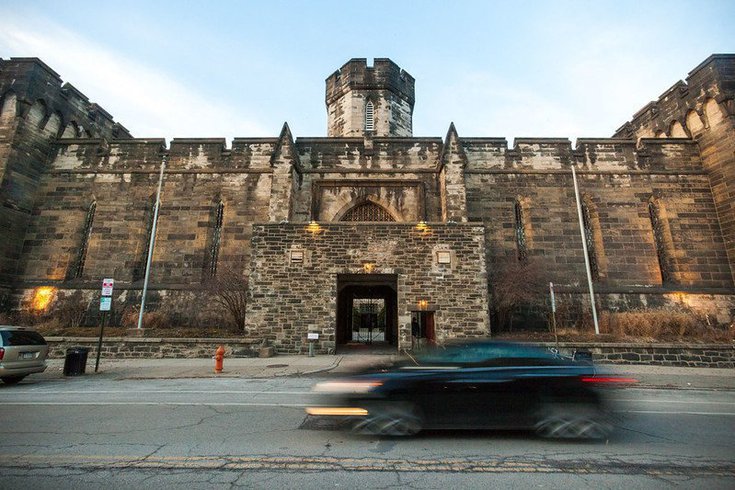
March 02, 2023
 Thom Carroll/For PhillyVoice
Thom Carroll/For PhillyVoice
A group of 65 workers at the Eastern State Penitentiary Historic Site has voted to unionize with United Steelworkers. The employees are seeking better pay, better safety and transparency surrounding promotions and scheduling.
Workers at the Eastern State Penitentiary Historic Site in Fairmount have voted overwhelmingly to unionize on Wednesday in an effort to secure better pay, improve safety on the job and protect themselves against workplace discrimination.
A group of 65 employees voted to organize under the United Steelworkers, one of the largest labor unions in the country. It represents more than 850,000 workers in metals, energy-production, health care, public sector, glass and mining industries. The newly organized employees include educators, retail workers, administrators and visitors' service workers at Eastern State Penitentiary, according to the union.
The group decided to unionize over a wide variety of concerns, including health and safety, scheduling transparency from management, pay and protections from workplace discrimination, according to the union. Workers also cited the need for job security and paths to promotions, as workers claim management "pushes back" when they raise those issues.
"We're unionizing because we need to advocate for ourselves when it comes to compensation and safety, without fear of reprisal," Annie Finnegan, who has worked in visitors' services for three years, said in a release in December. "A union provides that seat at the table."
The historic site's sprawling, open-air tours often subject workers and visitors to extreme temperatures and safety risks that they believe management has failed to address. Finnegan said that the museum is a "living ruin," and that the cells which once held prisoners like Al Capone require constant care from workers.
"This museum is incredibly important to this city's history and its future," Joshua Lewis, an educator at the site, said in a release. "We want to make sure its legacy endures."
Sally Elk, president and CEO of Eastern State Penitentiary, said in an emailed statement that voting results indicate that the "professional" group of workers — comprised of accounting managers and digital communications employees — voted not to unionize, while the "non-professional" group of employees — made up of service staff and museum educators — voted to join the union.
The distinction is made by the National Labor Relations Board as part of its election and voting process. Of the 70 workers that initially petitioned the NLRB in December, 65 workers have voted to unionize.
"We appreciate that so many of our team members took the time to weigh their options carefully and participate in this election," Elk said. "We have found discussions with our teams to be mutually respectful and open."
Elk said that the museum respects both decisions, and that leadership is prepared to bargain in good faith to reach a mutually beneficial agreement.
A spokesperson for United Steelworkers said that the union will be reaching out to Eastern State Penitentiary leadership to begin scheduling negotiations on the workers' first contract.
Eastern State Penitentiary first opened its doors as one of the country's first penitentiaries in 1829, and operated as a prison until 1970. The museum, as Philadelphia residents and tourists know it today, opened in 1994. It has had a few makeovers over the years, both in content and design, with museum leadership pushing to focus on criminal justice reform in 2017.
Amid financial losses due to the economic impacts of COVID-19 in 2020, Eastern State Penitentiary laid off 40% of its staff and canceled its popular Halloween programming, calling the decision a "last resort" due to loss of revenue, according to a museum release.
Eastern State Penitentiary workers are not the only ones moving for union representation, with several industries across Philadelphia seeing an influx in union organizing. In October, unionized workers at the Philadelphia Museum of Art finalized their first union contract after more than two years of negotiations and a 19-day strike outside of the museum.
Hundreds of resident physicians and fellows at Penn Medicine are currently seeking union representation, and, if successful, would become the first group of unionized residents in Pennsylvania.
Most recently, the Temple University Graduate Students Association, which represents about 750 part-time teaching assistants and research assistants, rejected a tentative agreement with the university that would have ended a strike that has been going on since Jan. 31.